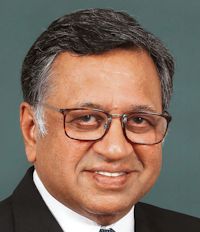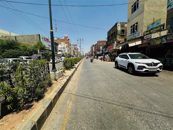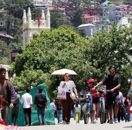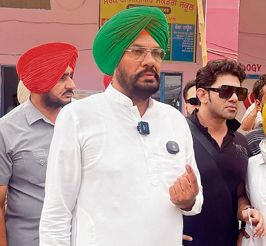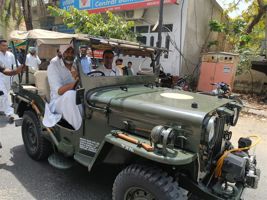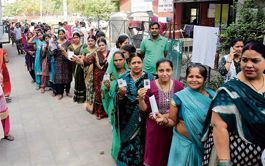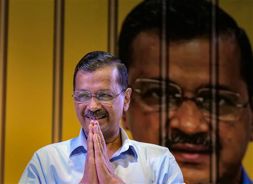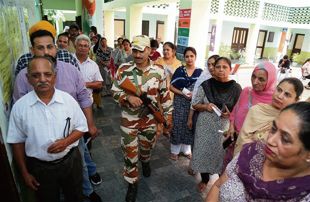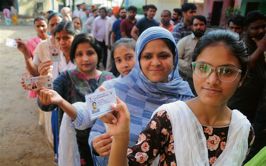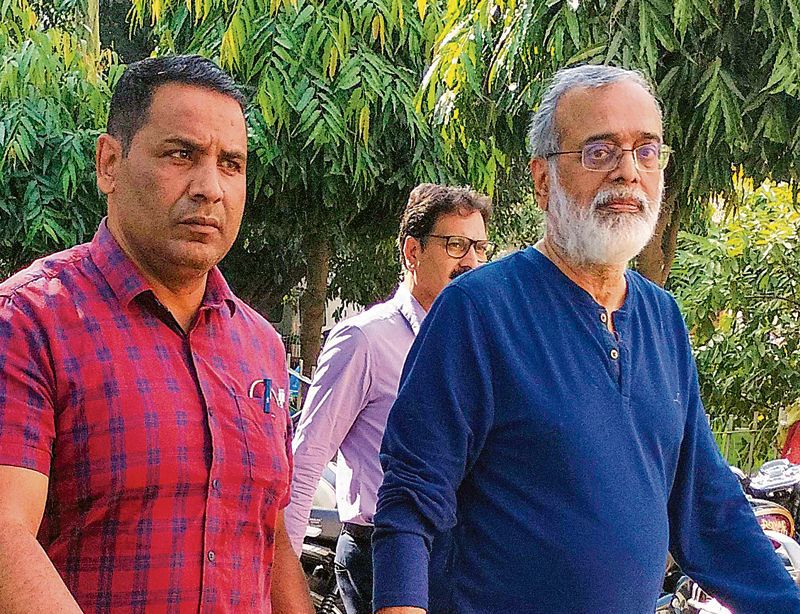
Lapse: Prabir Purkayastha (right) and his lawyer were not informed about the grounds for his arrest and the remand order was passed before the lawyer had received the remand application. PTI
Sriram Panchu
Senior Advocate
IN the film world, we are used to the phenomenon of delayed releases. It seems to be so in the judicial world as well. Arvind Kejriwal has been released after 50 days in captivity, all during peak election campaigning. And now the Supreme Court has set at liberty Prabir Purkayastha after he has been inside a prison for about 225 days. While there is relief at the release, one must question why it takes so long, and what kind of laws keep men behind bars so easily.
Purkayastha is the head of NewsClick, an online journalistic platform known for its sharp reporting, independent views and for not being particularly respectful of the powers that be. People like him are irritants to excessively strong governments, which like media outlets to be supportive by nature or bought out otherwise. How dare he focus on the farmers’ agitation, Covid failures and the like! He was charged with a rather unusual offence — of accepting funds from Chinese sources to influence the political narrative in India. A bit surprising, since one doesn’t remember any pro-Chinese narrative from NewsClick. While one should be wary of China, one would have thought that would extend to preventing border incursions and curbing excessive dependence on imports. But no, Purkayastha is the problem, it seems. An associate turned approver — not much to wonder about that since this is happening pretty regularly now, as witnessed in the Kejriwal case.
The flaw in the case was a gaping one. Purkayastha and his lawyer were not informed about the grounds for his arrest and the remand order was passed before the lawyer had received the remand application. Now this kind of non-conformity with the law is what lawyers and judges call “going to the root of the matter”; it vitiates the entire proceedings. Notice that this flaw happened on day one. Yet, and this is what should disturb us, it has taken the judicial system more than half a year to release him.
We need to focus on why it is that invariably the accused has to travel all the way to the apex court to obtain release. Why aren’t district courts and high courts doing their job of providing legal redress in cases of personal liberty? While the members of the former may not feel sufficiently protected, HC judges have as much constitutional protection for their independence as the judges of the Supreme Court have. What prevents them from stepping up to the plate, especially when the facts are stark enough? The system works well when each level of the judiciary plays its part, and an overdependence on the highest court is not healthy. Even there, we have seen the unusual phenomenon of withdrawal of personal liberty cases of prominent individuals after a noticeable change of the roster.
One cannot blame our judges overmuch, however. The chief problem is the monstrous nature of the laws under which these detentions are made. These are the Unlawful Activities Prevention Act (UAPA), 1967, and the Prevention of Money Laundering Act (PMLA), 2002. Purkayastha, Sudha Bharadwaj, Gautam Navlakha, the late Father Stan Swamy and other Bhima Koregaon accused were held under the first, and Kejriwal, Hemant Soren, K Kavitha, Manish Sisodia and other politicians under the latter. These Acts and later amendments — and here both the BJP and Congress governments are to blame — make it virtually impossible to get bail, mandating that the judge first find that the accused is prima facie innocent; this is an inversion of the time-honoured principle of presumption of innocence. This principle is the first rule of civilised societies, and any departure from it, unless justified by extreme risk to society, is an indication that the rule of law has become a casualty to politics. There are other damaging provisions — the authorities can arrest without much cause; the normal criminal law restrictions on the police are absent; confessions obtained in custody are valid. Above all, there is the application of this draconian statute to ordinary offences. Even the dreaded Maintenance of Internal Security Act (MISA), 1976, had an advisory board of high court judges to review detentions during the Emergency; it is noteworthy that the laws in question have no such provision in free India.
The sad part of the story is that the SC has upheld the validity of these laws — lock, stock and barrel — for the State and against citizens. A blot on our judicial landscape is the judgment of Justice AM Khanwilkar in the VM Choudhary case, equalling the constitutional and public damage that was done in that infamous judgment (ADM Jabalpur vs Shivkant Shukla, 1976) where it was held four to one (the great Justice HR Khanna dissented) that with the proclamation of the Emergency and suspension of fundamental rights, citizens were at the mercy of the State. The SC has admitted a review of the Choudhary judgment, but this is another priority case languishing without a hearing. Of cheer today, however, is the judgment of Justices Abhay S Oka and Ujjal Bhuyan, curbing the ED’s power to arrest after the special court takes cognisance of a complaint.
Purkayastha’s long detention is particularly disturbing because courts worldwide are usually quick to examine cases of journalists being held in preventive custody. The judiciary and a free press are pillars of democracy, and the courts must be more vigilant in checking overbearing governments of whichever hue which threaten their members. But recent detentions have lasted long — journalist Siddique Kappan, for example. In contrast, Arnab Goswami (albeit not arrested under these laws) got double-quick release; these are not good messages to send out.
The record of the authorities in proving guilt and securing convictions under these laws is abysmal — as low as 3 per cent. This means that citizens were being held despite being innocent, and often without reasonable cause. When will our laws and courts start thinking about compensation for unjust imprisonment and deprival of liberty? And when will we teach officers of such agencies and their political masters that they do not have immunity for mala fide and wantonly wrongful acts? Is the arm of the law sufficiently long?
With the assistance of Vikas Muralidharan, lecturer, Sai University, and Aprameya Manthena, advocate, Madras High Court
Join Whatsapp Channel of The Tribune for latest updates.






